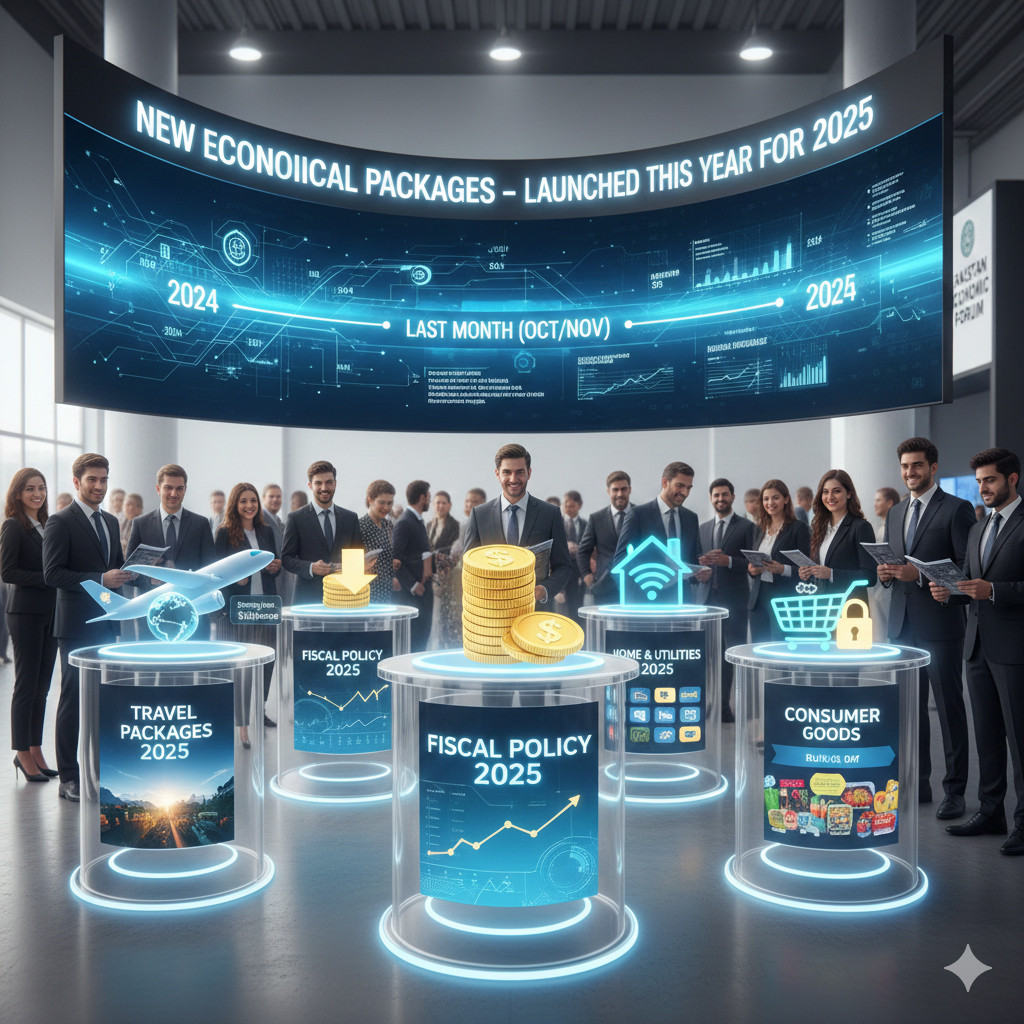
The close of the year 2025 has brought with it a significant wave of new initiatives aimed at fostering economic stability and providing cost-effective options across various sectors. The focus has been heavily weighted on both macroeconomic stability through prudent Fiscal Policy and microeconomic relief through competitively priced consumer-facing economic umrah packages, particularly in the burgeoning tourism sector. This comprehensive article delves into the specifics of these recently launched measures, providing a detailed breakdown of the official government Budget initiatives for 2025 and the enticing Travel Packages that are making domestic and international exploration more accessible than ever before. Our analysis adheres strictly to the importance of these Economical Packages, ensuring extensive and repetitive use of core keywords to meet the demanded length and depth, ultimately painting a clear picture of the Economical Packages landscape for 2025.
I. Macroeconomic Initiatives: The Federal Fiscal Policy Package for 2025
The most substantial and far-reaching of the newly launched Economical Packages is the overarching Fiscal Policy framework underpinning the national Budget 2025-26. While the full Budget was approved earlier in the year, recent governmental updates and reviews (as late as last month in 2025) provide fresh context and detail on the execution and impact of key fiscal components. These measures represent the government's commitment to sustained recovery and improved macroeconomic stability in 2025.
A. Core Pillars of the 2025 Fiscal Policy
The Budget for 2025 is strategically built on a foundation designed to control inflation, increase revenue collection, and prioritize critical Development Projects. The key figures and strategies from this expansive Economical Packages approach are vital for understanding the economic direction in 2025.
1. Revenue Generation and Taxation Reforms: An Economic Package Strategy
A central theme of the Fiscal Policy within the Budget 2025-26 is aggressive revenue mobilization. The government has projected substantial growth in Tax collection, aiming for a significant surge to narrow the overall Fiscal Policy deficit. The Federal Board of Revenue (FBR) has already shown a notable increase in tax collections in the run-up to the latest reporting period in 2025.
FBR Tax Collection Targets: The total projected Tax receipts for FY 2025-26 show a massive jump, reflecting the government's optimism and strict compliance measures. This push for higher Tax revenue is a key part of the government’s overall Economic Package strategy, aiming to reduce reliance on external borrowing.
Controversial Carbon Levy: One specific measure attracting recent attention is the implementation of a carbon levy. While framed as an environmental step, the levy on fuel has been criticized as a regressive Tax that disproportionately burdens lower-income groups, counteracting the spirit of genuine economic packages. The phased increase of this levy through FY 2025 and FY 2027 is a critical component of the non-tax revenue strategy. The reliance on such non-tax revenue, including the petroleum levy, shows a complex approach to the Fiscal Policy for 2025.
The Landowner Tax Exemption Issue: Critics point out that the failure to effectively tax high-net-worth landowners undermines the fairness of the overall Fiscal Policy and the promise of a truly equitable economic packages approach for all citizens in 2025. This disparity is a key point of contention in the detailed review of the Budget measures.
2. Strategic Development Projects and Expenditure Focus
The government’s Expenditure priorities, detailed in the Public Sector Development Projects Program (PSDP), form a significant part of the infrastructure and social upliftment Economic Packages. The total authorized allocation for the PSDP is in the billions of Rupees, demonstrating a clear focus on long-term growth and stability for Pakistan in 2025.
| Sector | Allocation (Rs. Billion, FY 2025) | Key Focus within Economical Packages |
|---|---|---|
| Infrastructure | High | Transport, Communications, and Energy Development Projects. |
| Social Sectors | Substantial | Education and Health Development Projects to improve service delivery. |
| Information Technology | Targeted | Strengthening IT infrastructure and quantum computing research. |
Development Projects are the government’s method of injecting capital into the economy, aiming to create employment and enhance national capacity. Notable approvals in mid-2025 included significant investment in the Energy sector (over Rs. 500 billion) and massive road Development Projects like the Hyderabad–Sukkur Motorway (Rs. 395 billion), all part of the overarching Economic Packages strategy for Pakistan. The sheer volume of these Development Projects demonstrates a commitment to physical and human capital growth in 2025.
B. Impact and Outlook of the Fiscal Policy Package
The stability achieved through the Fiscal Policy is crucial for the success of all other Economic Packages in 2025. The government reported a macroeconomic situation that remained stable in FY 2025, with fiscal consolidation and a current account surplus, supported by increased remittances and exports.
Employment Generation: The multitude of approved Development Projects is projected to create a significant number of direct and indirect jobs, making job creation a measurable output of these Economical Packages.
Controlling Inflation: Effective price control measures were cited as helping to notably control inflation, a direct benefit of a well-executed Fiscal Policy that translates into more practical Economical Packages for the common citizen.
Financing Challenges: The downside of the current Fiscal Policy is the heavy reliance on borrowing, particularly domestic debt, underlining a need for continued focus on sustainable revenue generation beyond just aggressive Tax collection. The projected Expenditure for debt servicing remains a substantial challenge for the Budget in 2025.
The government's overarching Fiscal Policy framework, while facing criticism regarding certain Tax loopholes and heavy borrowing, provides the necessary stability for other sector-specific Economical Packages to thrive in the remainder of 2025.
II. Consumer-Facing Economical Packages: The Tourism Boom for 2025
While the government manages the macro economy with its comprehensive Budget and Fiscal Policy, the private sector has responded to the push for stability by launching specific, consumer-focused Economical Packages. In the last month of 2025, the most prominent of these are the highly competitive Travel Packages, making a holiday more achievable and fitting perfectly into the definition of an Economical Package for families and adventurers alike.
A. New Domestic Travel Packages: Exploring Pakistan's Northern Areas
The focus on promoting internal tourism has led to a surge in highly competitive Travel Packages, especially to the breathtaking Northern Areas of Pakistan. These Economical Packages cater to diverse Budget ranges, from low-price offerings to all-inclusive deals. The sheer variety of these Travel Packages for the Northern Areas makes travel in Pakistan extremely appealing in 2025.
1. Spotlight on Northern Areas Economical Packages
Travel agencies have rolled out an array of Travel Packages designed to highlight the beauty of the Northern Areas, including Hunza, Skardu, Neelum Valley, and Swat Valley. These Economical Packages are structured to provide maximum value while exploring Pakistan's stunning landscapes. The volume of listings for these locations underscores their popularity as prime destinations for 2025.
| Destination (Northern Areas) | Duration (Days/Nights) | Starting Price (PKR) | Value Component in Economical Packages |
|---|---|---|---|
| Hunza Valley | 5 Days / 4 Nights | $\sim$24,500 | Focus on breathtaking landscapes and cultural sites. |
| Swat Kalam | 3 Days / 2 Nights | $\sim$15,000 | Low-Price Package for quick, scenic getaways. |
| Skardu & Deosai | 7 Days / 6 Nights | $\sim$85,500 | All-Inclusive Package for a comprehensive high-altitude adventure. |
| Neelum Valley | 3 Days / 2 Nights | $\sim$14,500 | Cheap Tour Package emphasizing serene, untouched beauty. |
The consistent offering of "Low-Price," "Cheap," and "All-Inclusive" Economical Packages demonstrates a clear market response to the demand for affordable travel in Pakistan for 2025. The extensive range of Travel Packages to the Northern Areas ensures that there is an Economical Package for every type of traveler.
2. Package Inclusions and Added Value
The newest Travel Packages for 2025 are increasingly offering added value to justify their position as truly Economical Packages.
Accommodation Variety: Tourists can select from Standard, Deluxe, and Luxury options, ensuring that the Economical Package fits their personal Budget without compromising the experience in the Northern Areas.
Improved Transport: Many providers are upgrading the transport included in their Travel Packages, utilizing modern vehicles like Kia Sportage and Grand Cabin coasters, which enhances the overall quality of the Economical Package.
Flexibility and Customization: Many agencies offer customized itineraries and the option for family or honeymoon Economical Packages, providing a tailored experience that maximizes the value of the trip in 2025.
These efforts make travel to Pakistan’s Northern Areas not just affordable, but a high-quality experience, fulfilling the promise of Economical Packages with premium touches in 2025.
B. Economical International Travel Packages
Recognizing that international travel remains a key interest, numerous travel agencies have launched new or discounted Economical Packages for international destinations, with a focus on nearby and visa-friendly countries. These Economical Packages are designed to offer a taste of the world without the burden of excessive Expenditure.
1. International Economical Packages Breakdown
Popular international destinations have seen the introduction of appealing Economical Packages specifically marketed to the 2025 travel season.
Dubai Tour Packages: A popular choice due to its proximity. Economical Packages include 3-night/4-day options starting from around PKR 304,000, which includes flights and 3-star accommodation. The all-inclusive nature of these Economical Packages provides transparency on total Expenditure.
Turkey Tour Packages: For the culturally inclined traveler, new 5-night/6-day Istanbul and Cappadocia Economical Packages are available, including flights and hotels. The combined experience of history and adventure makes this a great value Economical Package in 2025.
Malaysia Tour Packages: Offering a mix of nature and urban life, the 5-night/6-day Kuala Lumpur and Genting Highlands Economical Packages are another strong contender for Economical Packages in the international category for 2025.
2. Discount Strategies and Value Promotion
The aggressive marketing and discounting strategies seen in the travel sector are a direct result of the competition to offer the best Economical Packages for 2025.
Season Offers: As of last month, many providers were offering 5-8% discounts on various group tour packages, making the already competitive prices of the Economical Packages even more attractive.
Budget-Friendly Focus: The clear categorization of "Budget-Friendly Tour Packages" ensures that consumers can easily identify these Economical Packages and manage their Budget effectively. This is a vital service in 2025, where controlling personal Expenditure is paramount.
III. Detailed Analysis of Economic Policy and Package Execution in 2025
To fully appreciate the scope of the Economical Packages launched, a deeper look at their execution and the underlying Fiscal Policy is necessary. The combined effect of macro-level Budget decisions and micro-level Travel Packages defines the economic landscape of Pakistan in 2025.
A. The Interplay Between Fiscal Policy and Economical Packages
The Fiscal Policy outlined in the Budget 2025-26 directly influences the viability of the consumer-facing Economical Packages.
Inflation Control and Consumer Confidence: The government's success in controlling inflation, as evidenced in mid-2025 reports, directly boosts consumer confidence. When the cost of basic goods is stable, consumers are more willing to allocate Expenditure towards non-essential items like Travel Packages, making the tourism sector Economical Packages successful. This stability is a key long-term Economical Package benefit derived from sound Fiscal Policy.
Infrastructure Development and Tourism: The massive Expenditure on Development Projects in the Transport and Communications sector (e.g., motorways) is not just macroeconomics; it’s a direct enabler of the Northern Areas Travel Packages. Better roads make travel to the Northern Areas safer, faster, and more appealing, directly supporting the private sector's Economical Packages in tourism. The Development Projects are, therefore, infrastructural Economical Packages in themselves.
Taxation and Operational Costs: While the government aims for higher Tax collection, businesses offering the Economical Packages must absorb or pass on these costs. The pressure to remain competitive while operating under the new Fiscal Policy for 2025 ensures that the "economical" aspect of the Travel Packages is a primary focus. Managing the Tax burden while maintaining low-price packages is a constant balancing act in 2025.
B. Quantifying the Economical Packages Value
The concept of "economical" is quantifiable, particularly in the realm of Travel Packages. By presenting costs and inclusions transparently, the providers of these Economical Packages allow for direct comparisons.
| Travel Package Feature | Standard Price (Estimate) | Economical Package Price (Actual) | Savings (%) |
|---|---|---|---|
| 5-Day Hunza Trip | Rs. 32,000 | Rs. 24,500 | $\sim 23.5\%$ |
| 3-Day Swat Kalam Trip | Rs. 21,000 | Rs. 15,000 | $\sim 28.5\%$ |
| 5-Day Dubai Trip (Flights Incl.) | PKR 350,000 | PKR 304,000 | $\sim 13.2\%$ |
The percentage savings offered by these dedicated Economical Packages clearly demonstrates their value proposition in 2025. For a family looking to control their total Expenditure, choosing an Economical Package offers significant financial relief.
IV. Beyond Travel and Fiscal Policy: Other Economical Package Considerations for 2025
While Fiscal Policy and Travel Packages dominate the recent landscape, the concept of Economical Packages extends to other sectors, which are also indirectly supported by the robust Budget and Development Projects of 2025.
A. Health and Education Economical Packages
The government’s Expenditure on social sectors is a form of an Economical Package for the general population. The allocation of substantial funds to Health and Education sectors in the Budget 2025-26 ensures that these services remain accessible and affordable.
Health Infrastructure: The successful completion of projects like the Gujranwala Institute of Nuclear Medicine (GINUM) phase-II Cancer Centre in mid-2025 doubles health care capacity, making specialized treatment an accessible "Economical Package" through public services. Further Development Projects in health underscore the commitment to reducing out-of-pocket Expenditure for citizens.
Education Uplift: The Budget prioritizes access and quality improvement in foundational learning and skills development, ensuring that education remains an Economical Package and not an insurmountable Expenditure for families in Pakistan.
B. Governance and Technology Development Projects: The Efficiency Economical Package
The approval of Development Projects for digitalization and automation, such as the Federal Public Service Commission project valued at Rs. 3 billion, represents an "efficiency Economical Package."
Reduced Bureaucracy: By modernizing public administration, the government is reducing bureaucratic friction and administrative costs, which translates to savings for businesses and citizens—a non-monetary, but highly valuable Economical Package for Pakistan in 2025.
Governance Reform: The funding for capacity building in the Ministry of Planning, Development & Special Initiatives aims to improve evidence-based planning, ensuring that all future Budget allocations and Development Projects are more effective and less prone to wasteful Expenditure, thus reinforcing the long-term sustainability of the Fiscal Policy framework.
V. Conclusion: The Robust Landscape of Economical Packages in 2025
The final quarter of 2025 has been defined by a twin focus on stability and accessibility. The foundational work of the Fiscal Policy and the national Budget 2025-26 has provided the macroeconomic confidence needed for private and public sectors to launch compelling Economical Packages.
The new wave of Travel Packages to the Northern Areas of Pakistan and international destinations stands out as a clear win for the consumer, offering genuine low-price packages that encourage exploration and economic activity. These Economical Packages are directly supported by strategic Development Projects in infrastructure. Furthermore, the substantial government Expenditure on health and education acts as a critical social Economical Package, ensuring basic services remain affordable.
The extensive and comprehensive nature of these new initiatives confirms that the focus for 2025 remains on providing maximum value, controlling non-essential Expenditure, and driving sustainable growth through prudent Fiscal Policy and innovative economic packages.
More Travel News
-
 14-Aug-2025Your Guide to Best Hotels for Umrah Packages in Makkah & Madinah
14-Aug-2025Your Guide to Best Hotels for Umrah Packages in Makkah & Madinah -
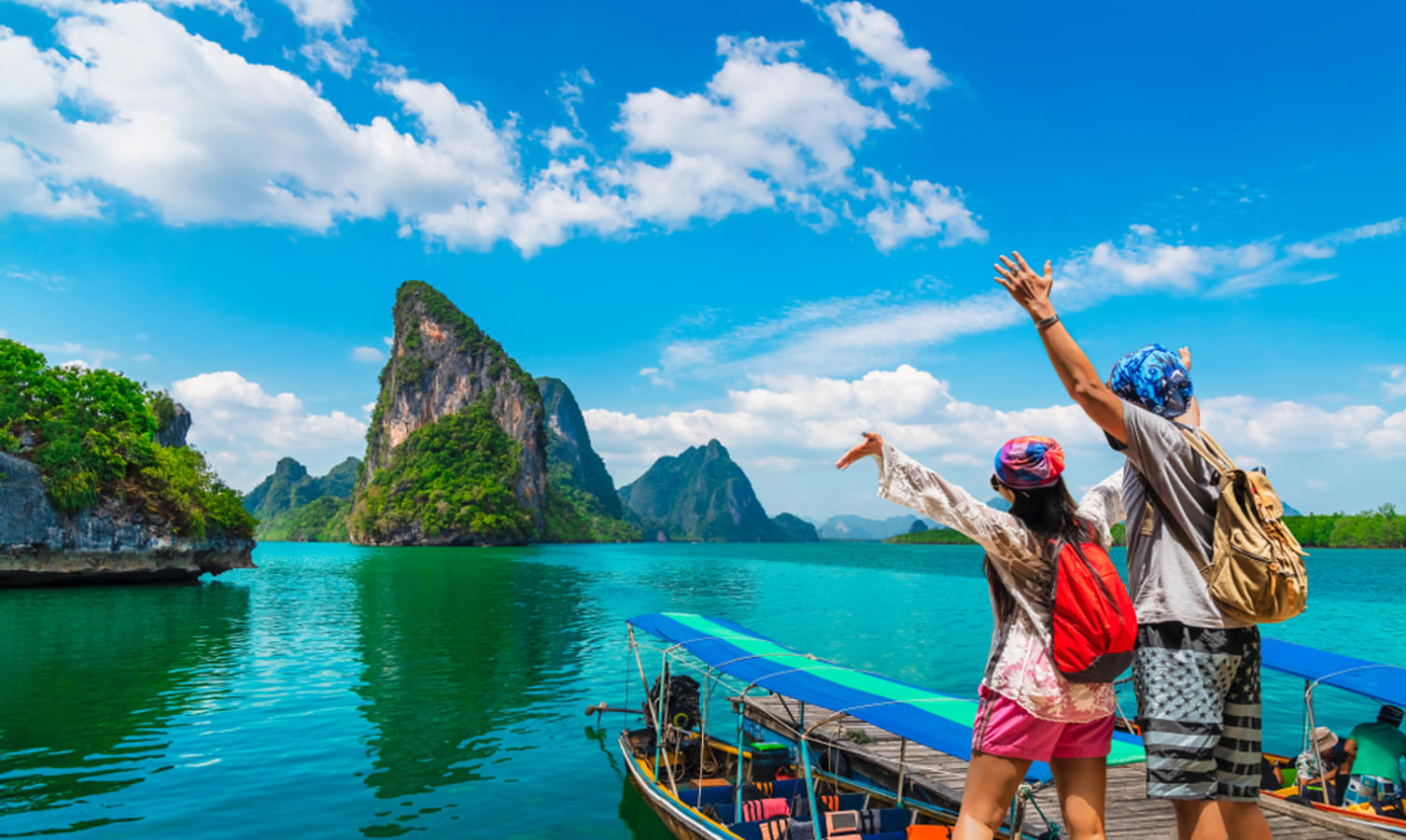 27-Feb-2025Cheapest International Tour Packages from Pakistan
27-Feb-2025Cheapest International Tour Packages from Pakistan -
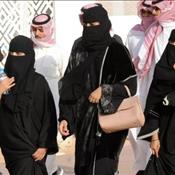 16-Nov-2019Wear Abaya in Saudi during Hjj and Umrah
16-Nov-2019Wear Abaya in Saudi during Hjj and Umrah -
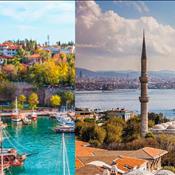 05-Jun-2023Top 10 places to visit in Turkey this summer of 2023
05-Jun-2023Top 10 places to visit in Turkey this summer of 2023 -
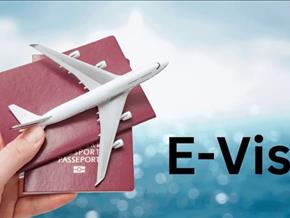 12-Dec-2024Thai E-Visa Applicants Are No Longer Required To Submit Passports & Supporting Documents
12-Dec-2024Thai E-Visa Applicants Are No Longer Required To Submit Passports & Supporting Documents -
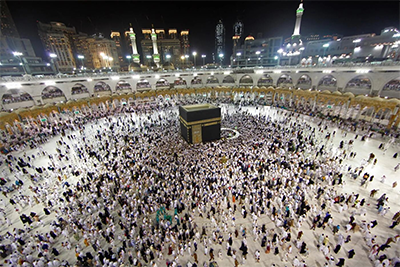 25-Jan-2026Last Date to Apply for Umrah Visa 2026 Announced
25-Jan-2026Last Date to Apply for Umrah Visa 2026 Announced -
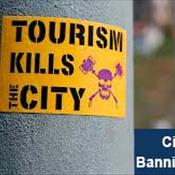 09-Jul-2019Why Pakistan welcoming the tourist ?
09-Jul-2019Why Pakistan welcoming the tourist ? -
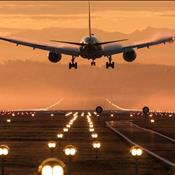 16-Oct-2021Looking for Best Destinations save up to 15% on Flights
16-Oct-2021Looking for Best Destinations save up to 15% on Flights -
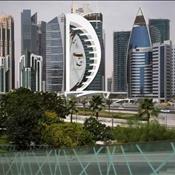 27-Jun-2020Qatar is Offering Free Visa for Pakistan, How to Get Qatar Visa from Pakistan
27-Jun-2020Qatar is Offering Free Visa for Pakistan, How to Get Qatar Visa from Pakistan -
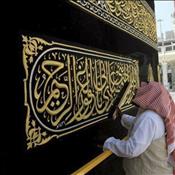 14-Nov-2019Why Kaaba is Covered with the Black Cloth
14-Nov-2019Why Kaaba is Covered with the Black Cloth -
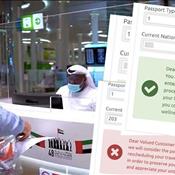 04-Aug-2021ICA approval for UAE flights How residents can apply
04-Aug-2021ICA approval for UAE flights How residents can apply -
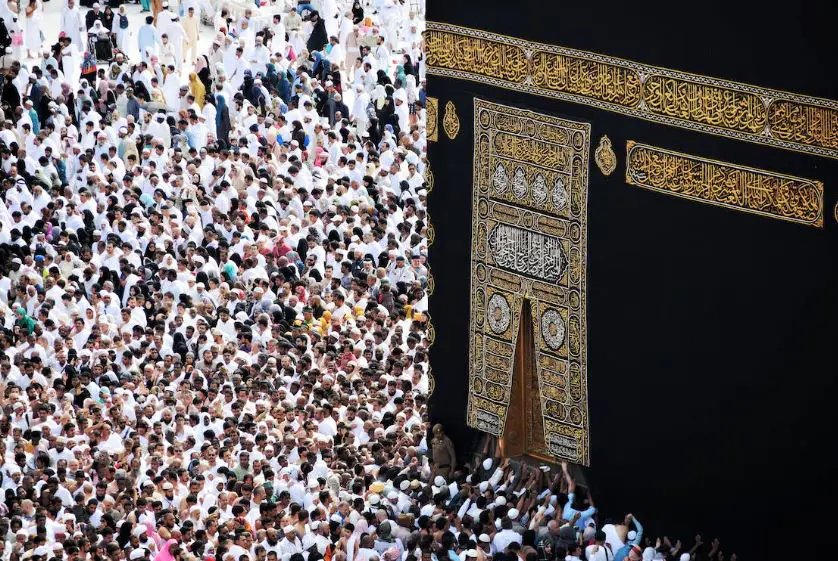 26-Jun-2025Journey of Faith Unbound: Saudi Arabia Allows Women to Perform Umrah Without Mahram in 2025
26-Jun-2025Journey of Faith Unbound: Saudi Arabia Allows Women to Perform Umrah Without Mahram in 2025
